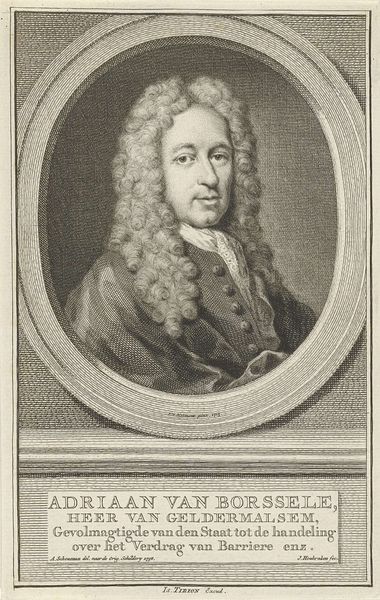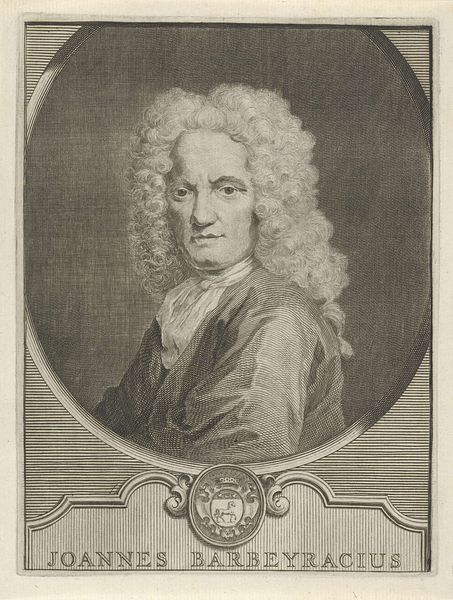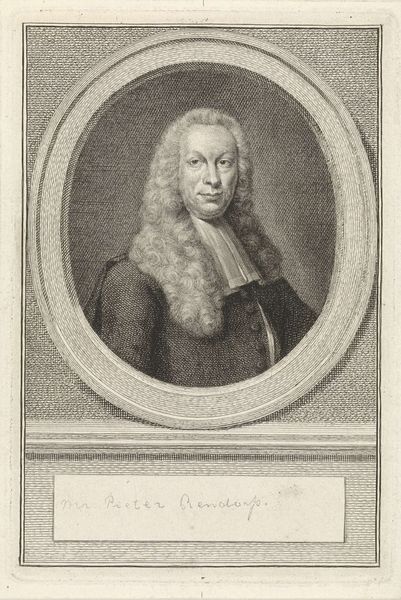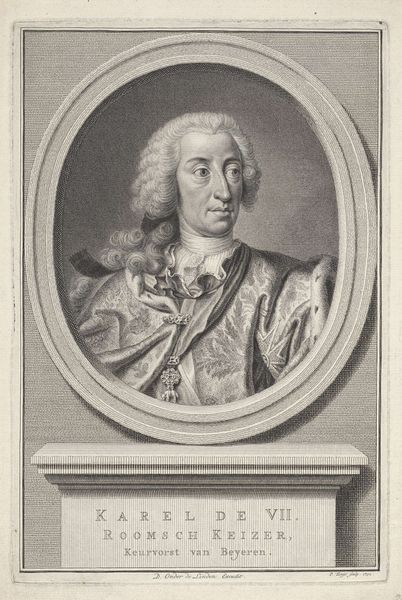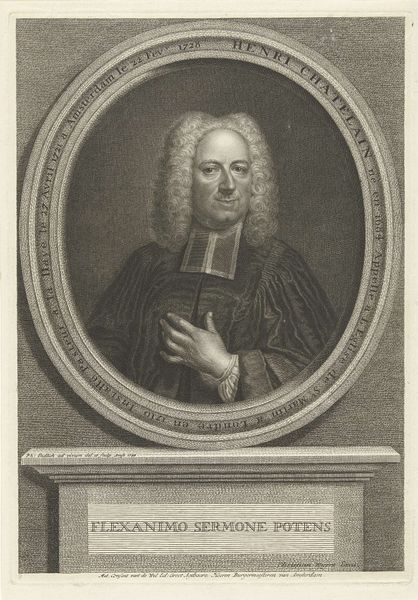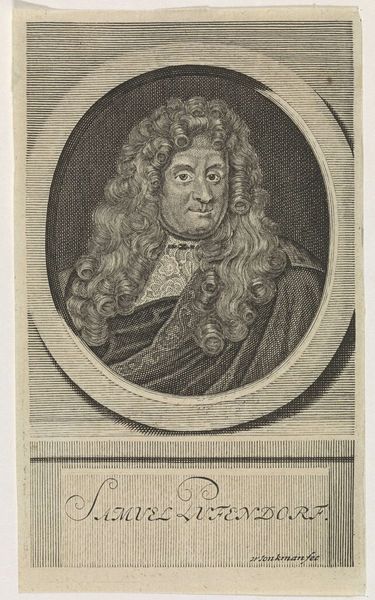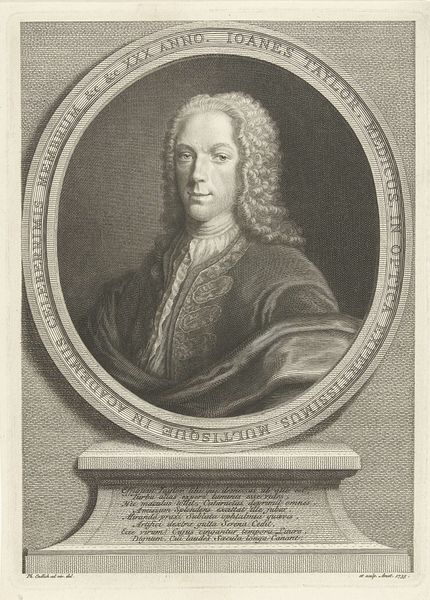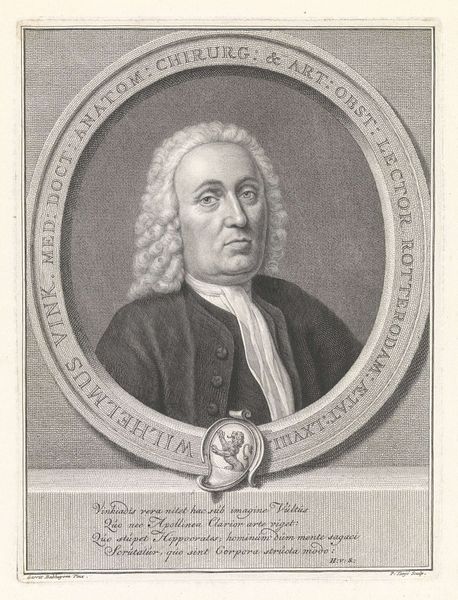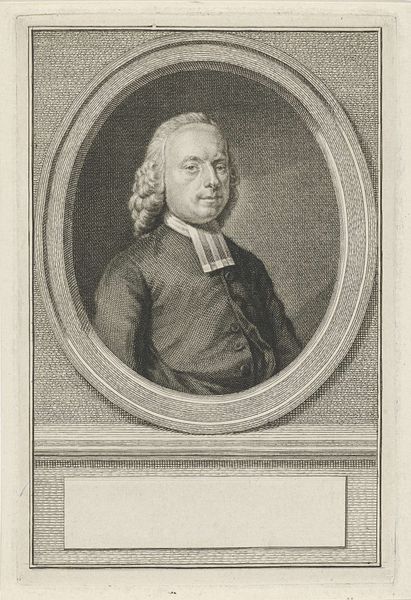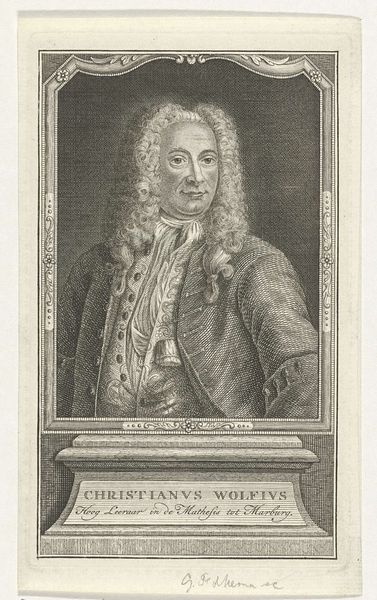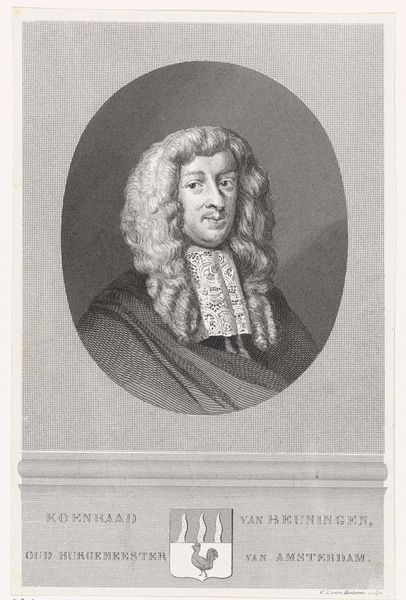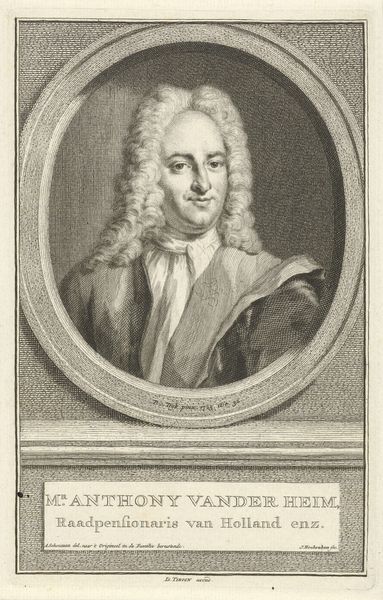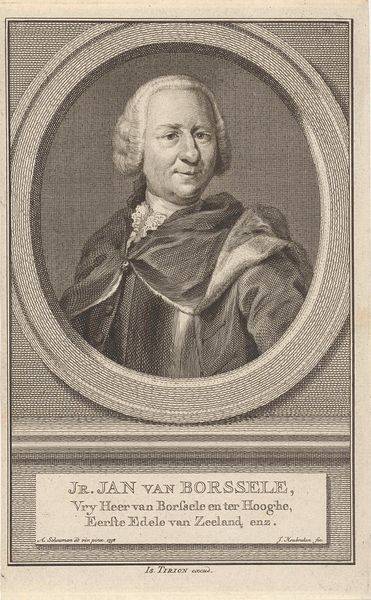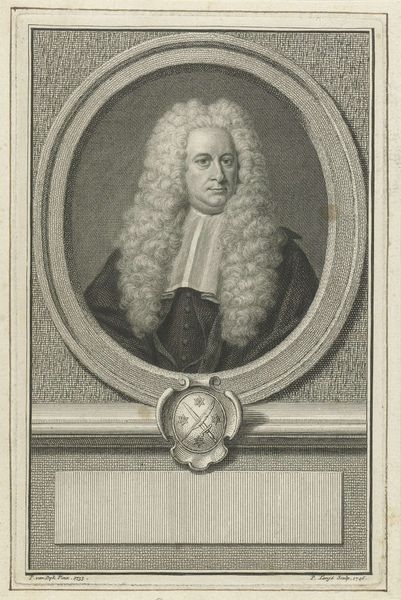
drawing, print, paper, ink, engraving
#
portrait
#
drawing
#
baroque
# print
#
old engraving style
#
paper
#
portrait reference
#
ink
#
line
#
engraving
Dimensions: height mm, width mm
Copyright: Rijks Museum: Open Domain
Editor: This is a print, an engraving really, of Sicco van Goslinga by Jacob Houbraken, dating somewhere between 1708 and 1780. The detail is amazing! It feels almost like a photograph in its clarity, especially the texture of his wig and the armor. How should we interpret portraits like this from a historical perspective? Curator: Well, beyond the artistry, such portraits served a critical social function. Consider, what does this image tell us about power structures of the time? Van Goslinga was a significant political figure. The armor might indicate military prowess or simply a connection to established power structures, designed to project authority and status. It speaks to how elites wished to be seen and remembered. Editor: So it's less about his individual personality and more about his role in society? Curator: Precisely! The portrait becomes a tool of self-representation within a specific political and social landscape. Who commissioned it and for what purpose are key questions. Was it for family, public display, or part of a series? These prints often circulated, spreading the sitter’s image and reinforcing their status among a wider audience. How do you think the relatively accessible medium of print affects the impact? Editor: That’s fascinating. Making multiple copies means more people could see it, almost like early political propaganda, then. The impact goes beyond just memorializing the individual. Curator: Exactly. Understanding that expands how we interpret this image, and its function. Instead of solely focusing on individual aesthetics or artistic skill, we begin to see how portraits actively participated in constructing and maintaining social hierarchies. Editor: This has really opened my eyes to a different way of looking at portraits. I will never see portraits as a snapshot of time again, and more about their significance in societal power. Curator: Indeed, considering the social and political context reveals a richer understanding of the portrait’s intended message.
Comments
No comments
Be the first to comment and join the conversation on the ultimate creative platform.
